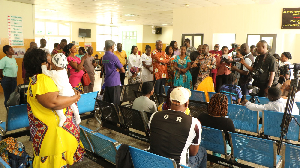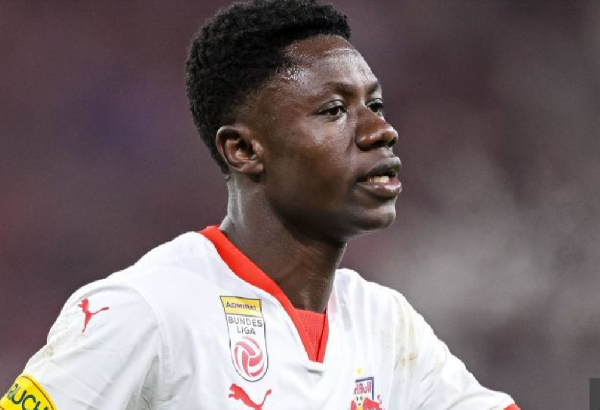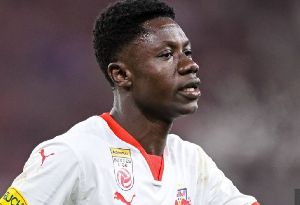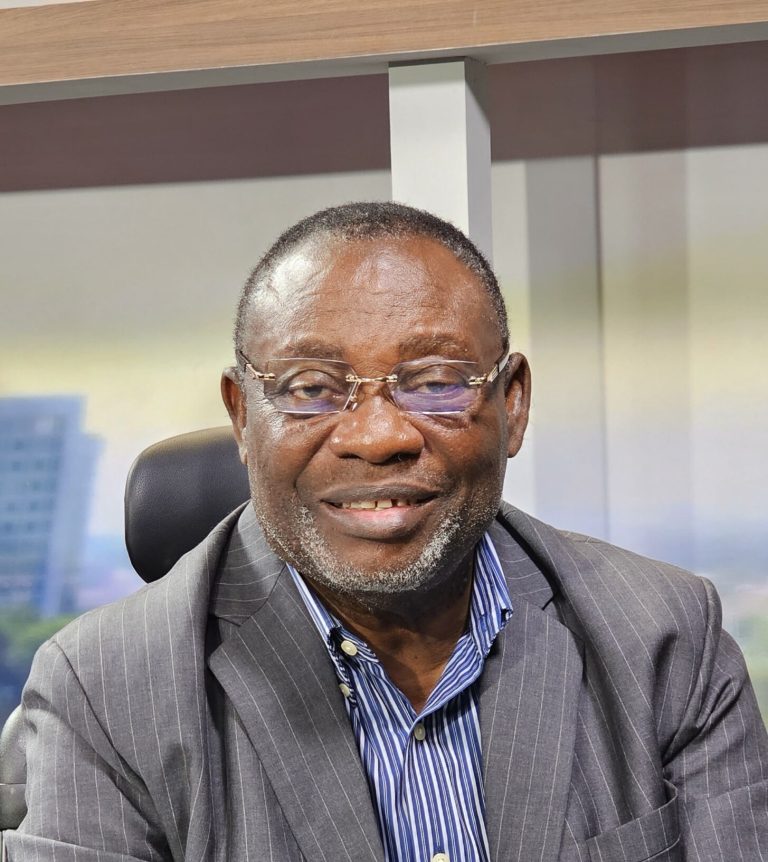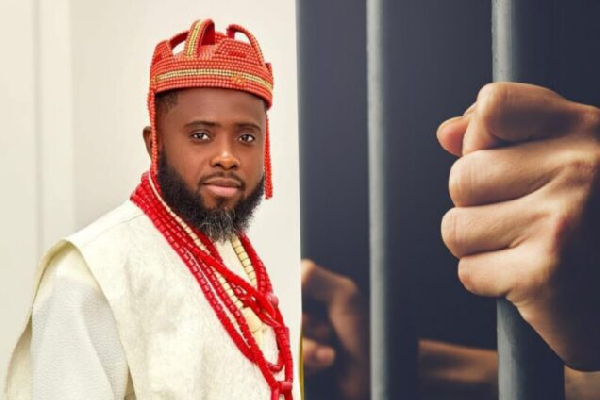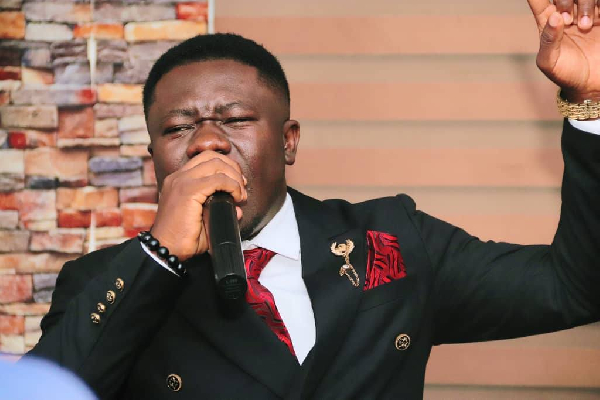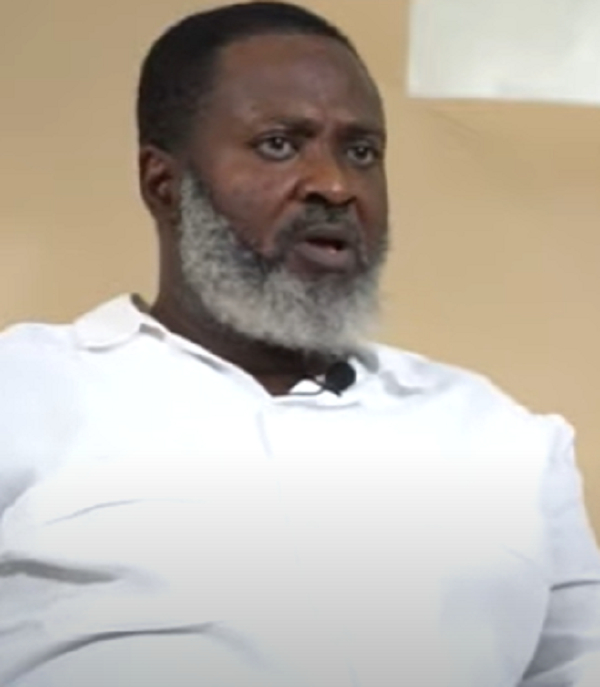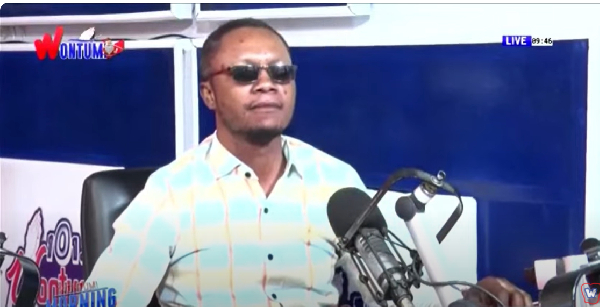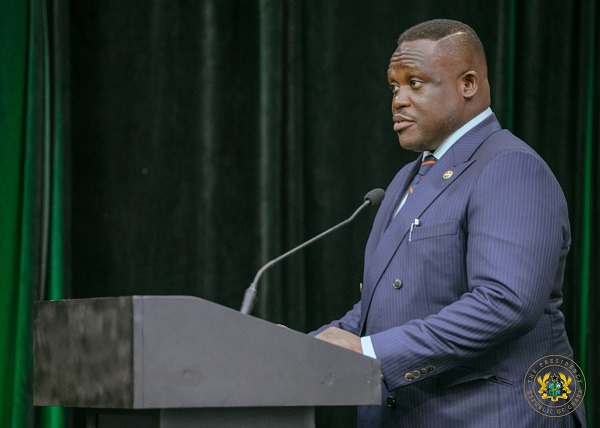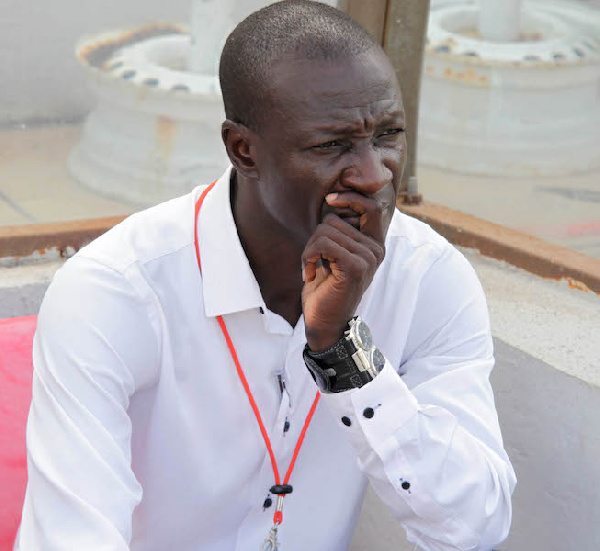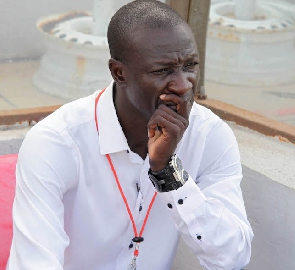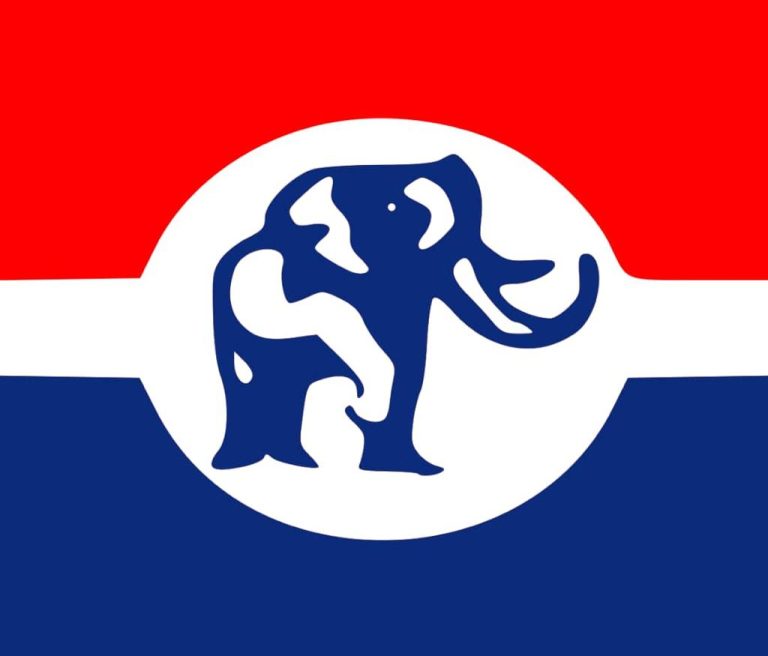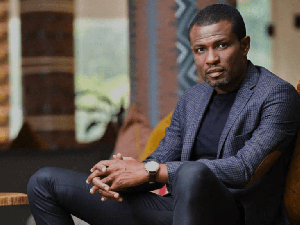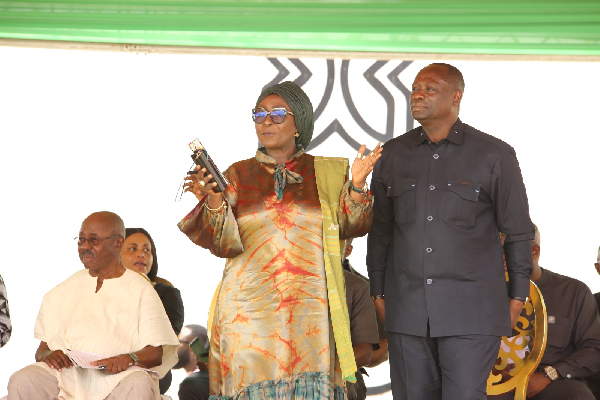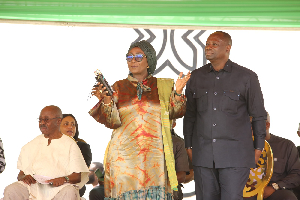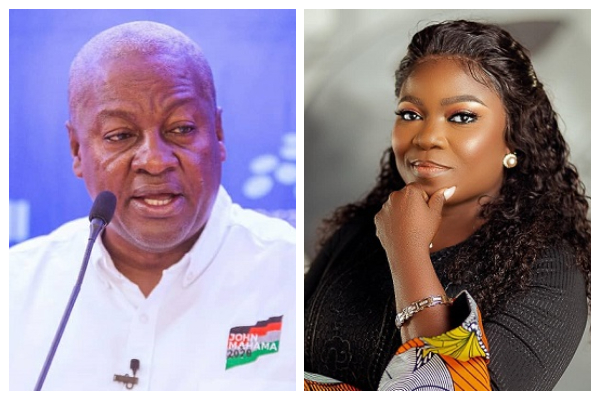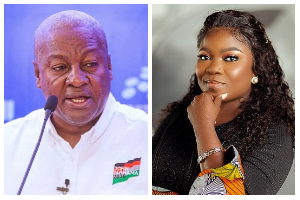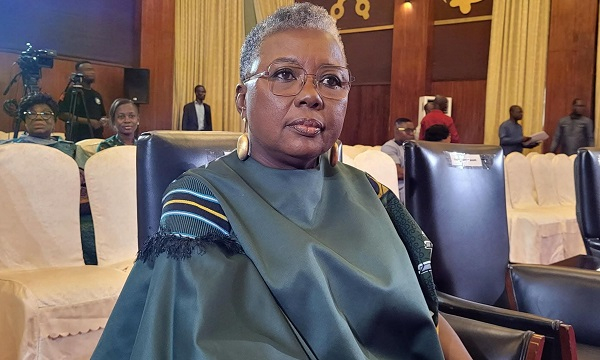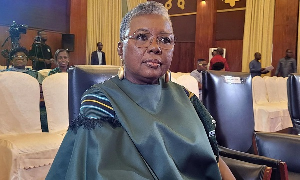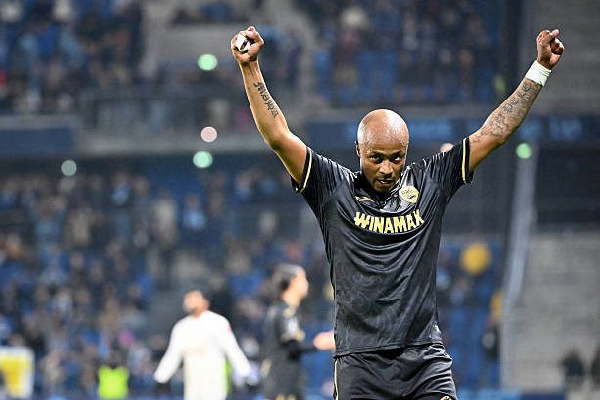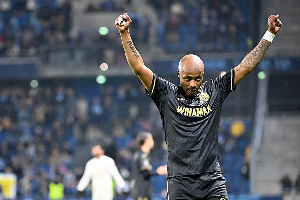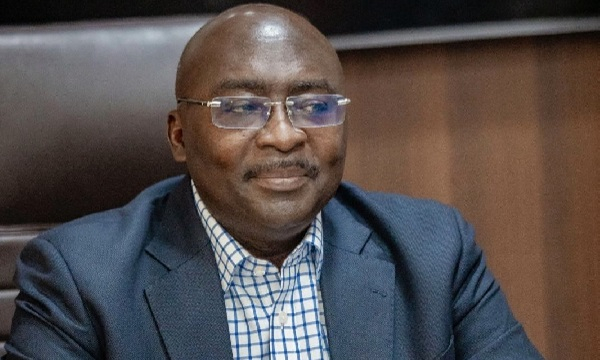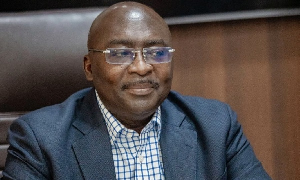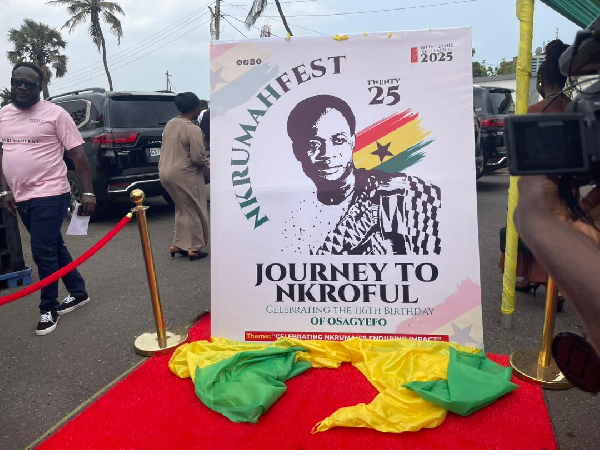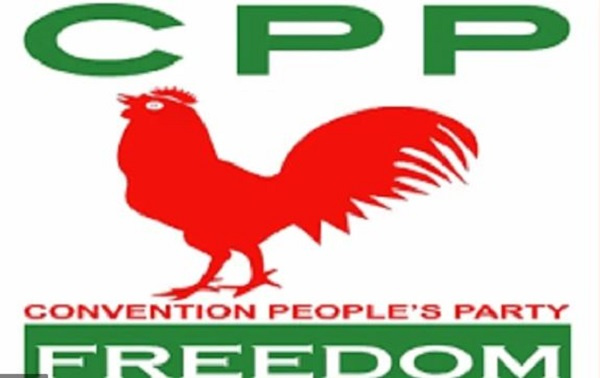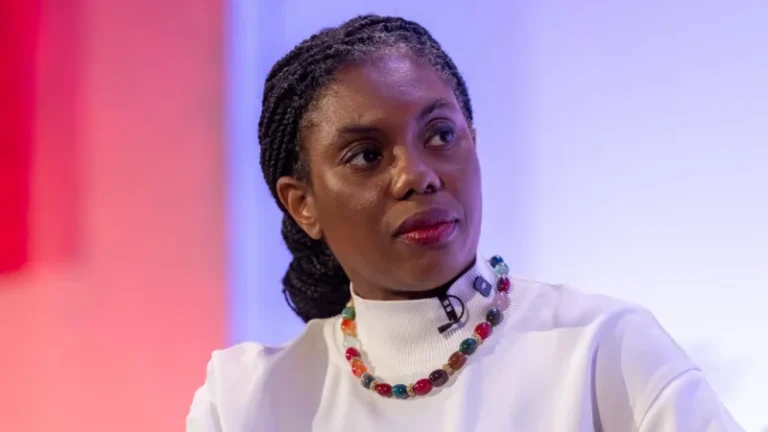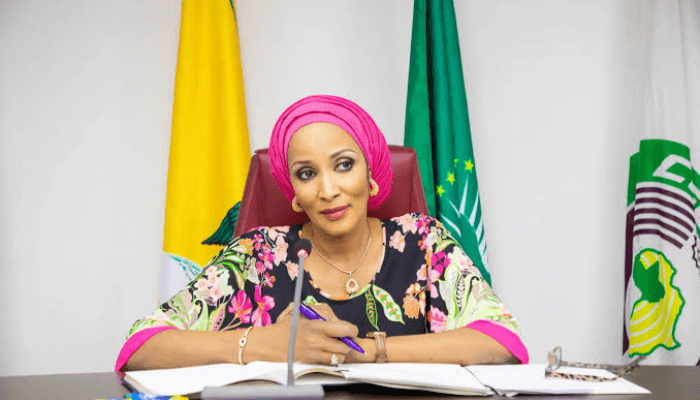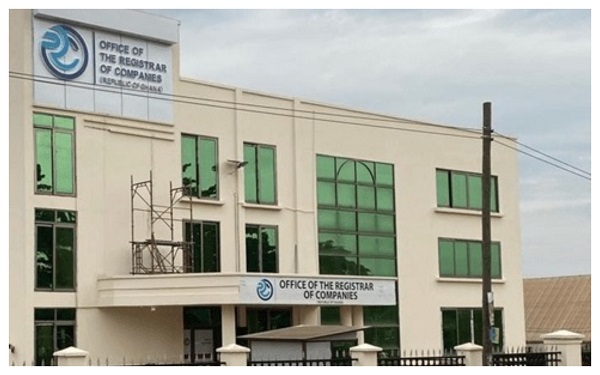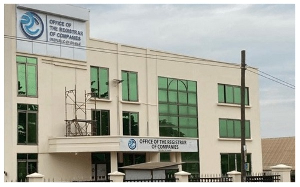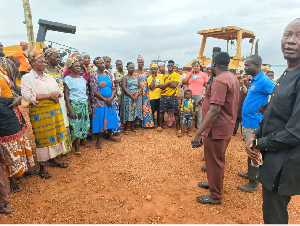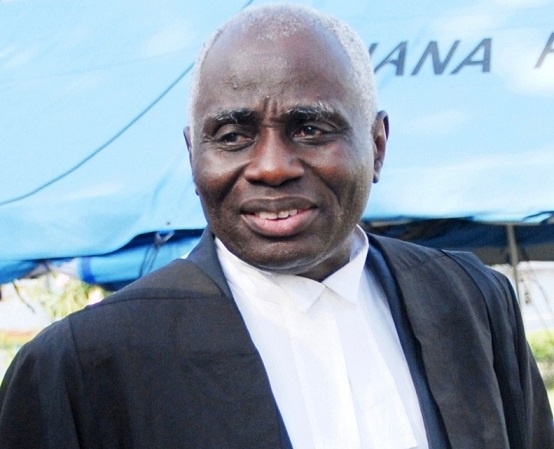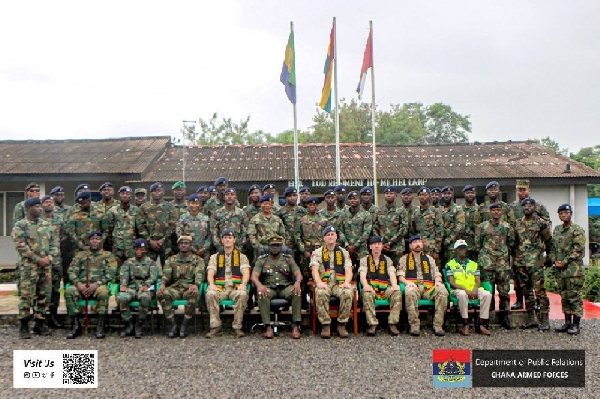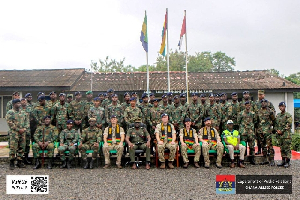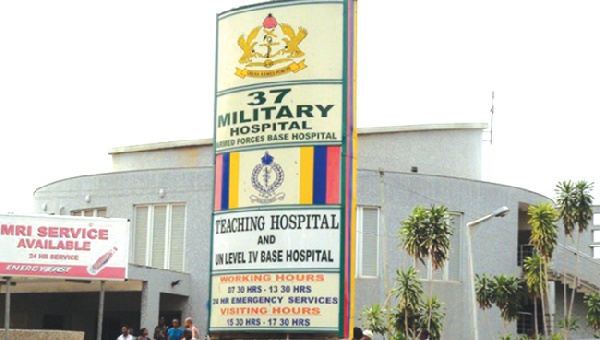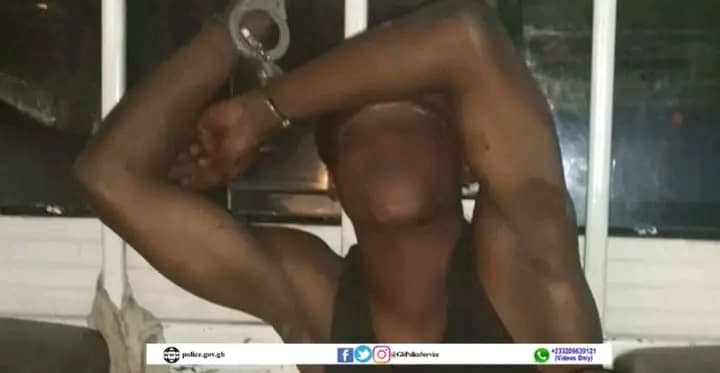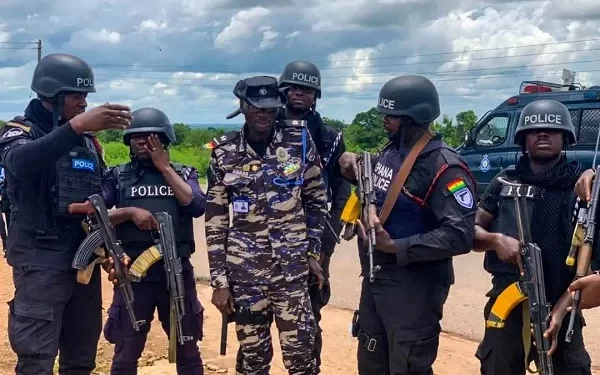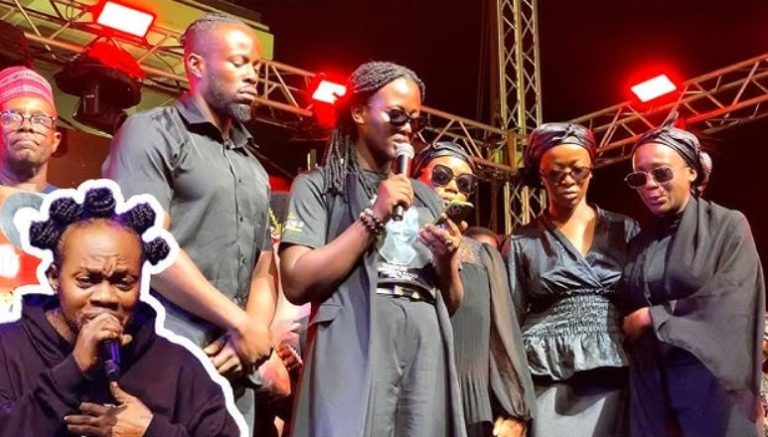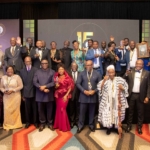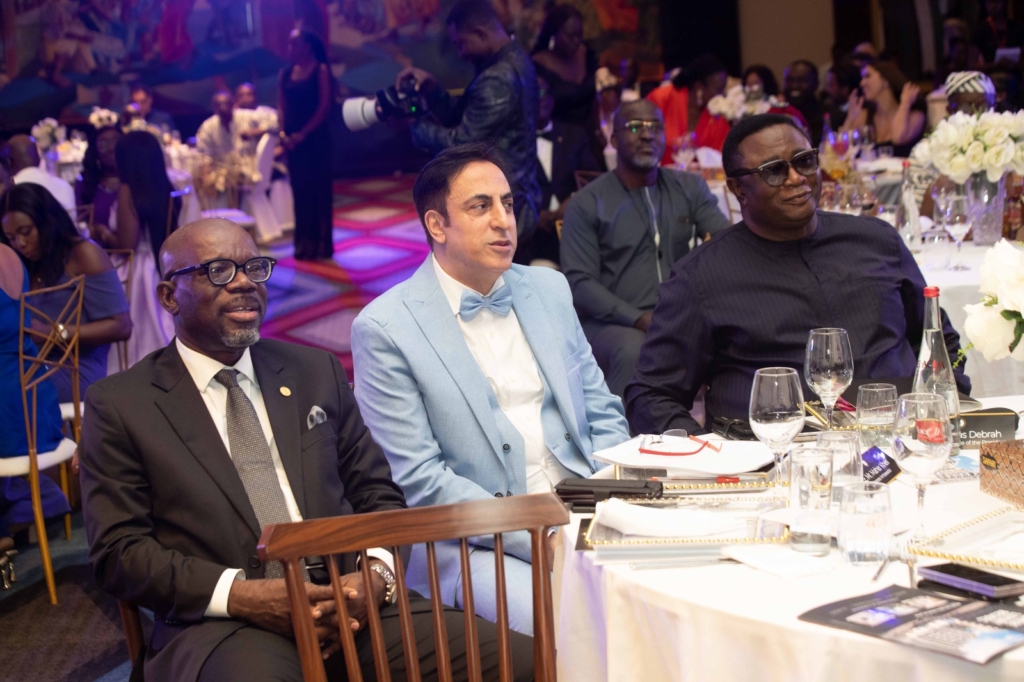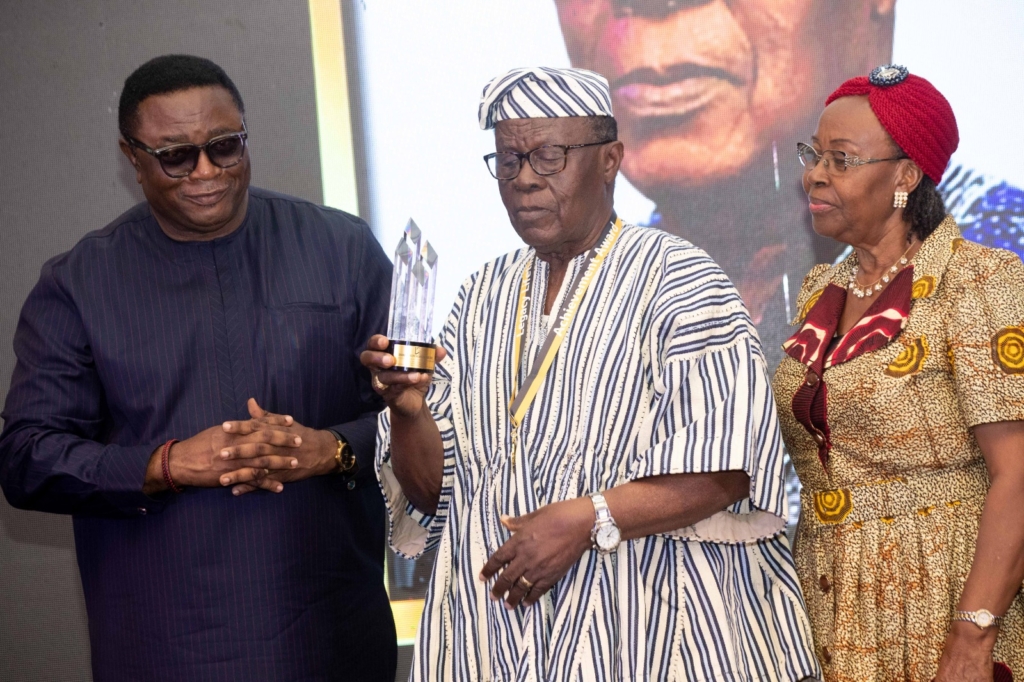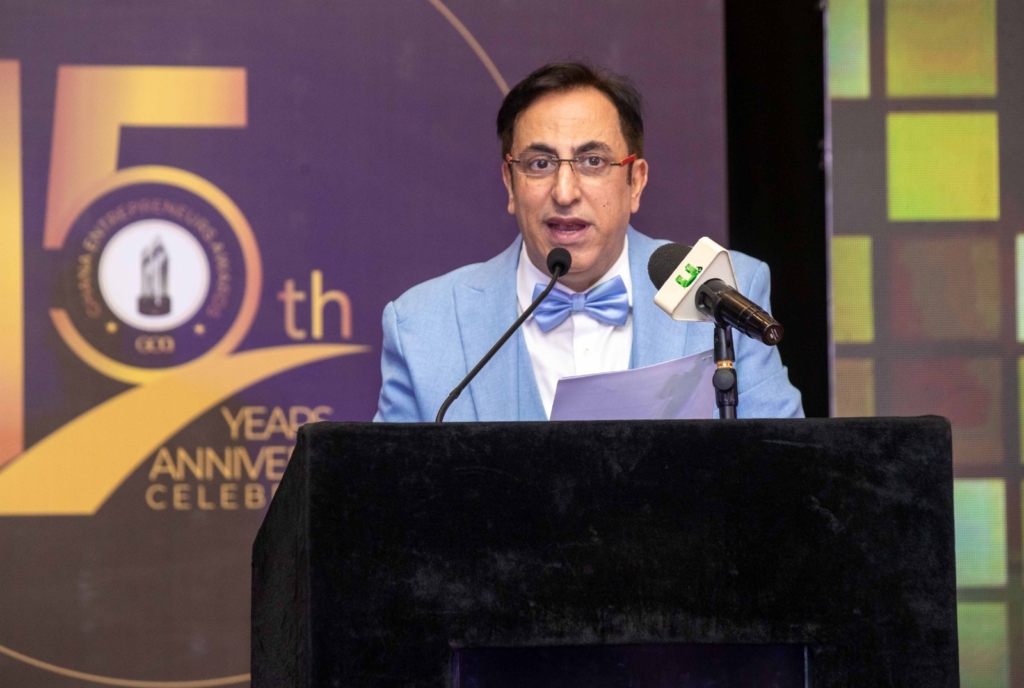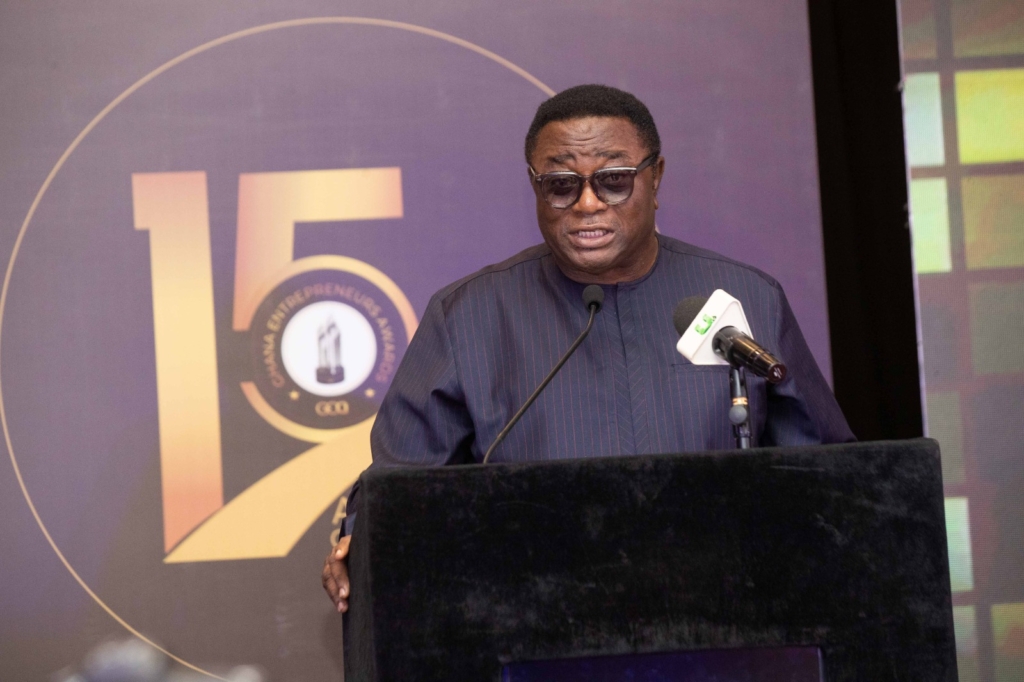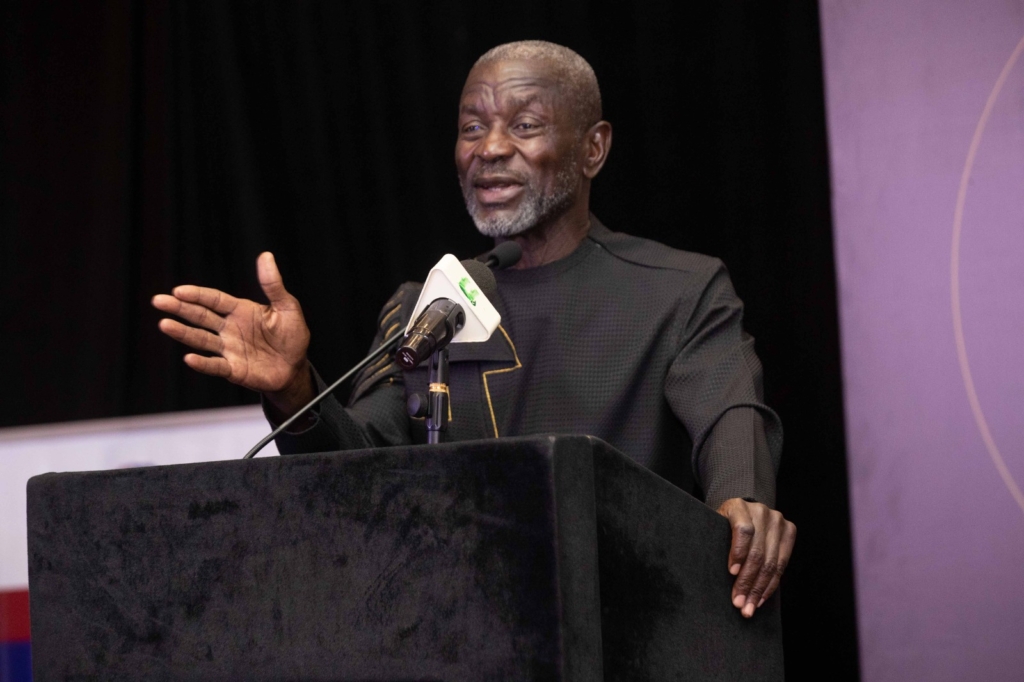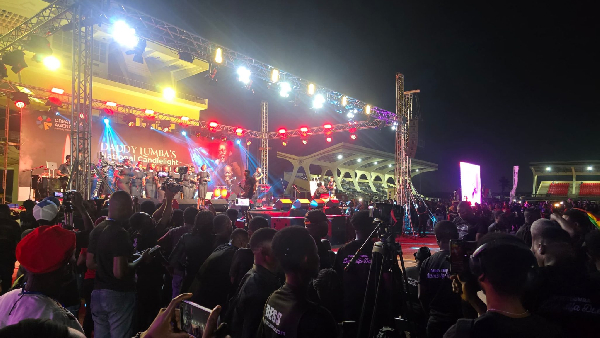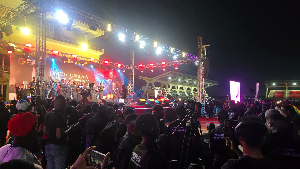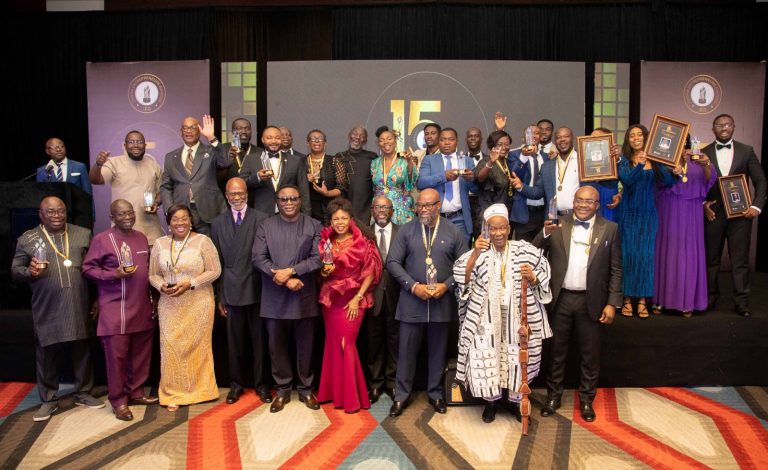Foreign Affairs Minister, Amb. Bianca Odumegwu-Ojukwu
…New media evokes old grudges
…Both nations condemn incident
…Say no diplomatic rift
…Mahama assures on safety of Nigerians, other nationals
With the Tuesday, July 29, 2025, protest in Accra by some Ghanaians that Nigerians must go, there are signs that history may be repeating itself.
The protesters seemed to be reciprocating what they assumed was an unfair action by the Nigerian government in 1983, when it expelled an estimated two million undocumented West African migrants, including about one million Ghanaians, following an economic downturn and an executive order by Shehu Shagari, the then president.
Such cannot be easily forgotten; hence, some concerned Nigerians saw it coming and insisted that the Tuesday protest was long overdue.
But whether it is called ‘Buyelekhaya’, go back home in South Africa, ‘Ghana Must Go’ in Nigeria or now ‘Nigerians Must Go’ in Ghana, such xenophobic campaigns have not done any good to a people or nation.
Probably, that was why President Bola Ahmed Tinubu had to swiftly curb the escalation of the protest through diplomacy, as his high-powered envoy, led by Bianca Odumegwu-Ojukwu, Minister of State for Foreign Affairs, met with the Ghanaian authorities, led by Sam Okudzeto Ablakwa, Ghana’s Foreign Affairs Minister, to restore peace, allay fear of possible attacks on Nigerian citizens, their businesses and properties and avert diplomatic crisis betwee n the two English-speaking West African countries.
Read also: No cause for alarm over Ghanaians’ anti-Nigerian protests, says Ojukwu
Protest trigger
Sadly, the Tuesday, July 29th protest, which could have caused a huge diplomatic crisis and further damage in the fragile peace in the ECOWAS corridor, was triggered by a recirculation of a four-minute video interview of one Chukwudi Ihenetu in 2013.
In the video, Ihenetu, who claimed to be the “Eze Ndi Igbo” (king of Igbos) in Ghana, declared his plans to acquire 50 acres of land where he would build an Igbo village in Ghana, and further expansion across the country.
As John Mahama, president of Ghana, rightly pointed out, the tension created by the recirculation of a video recorded over a decade ago by a Nigerian residing in Ghana, was uncalled for, hence the incident was promptly managed.
Old grudges, new media
While the protest, by President John Mahama’s account, involved fewer than 50 people, it quickly snowballed online. Twitter (now X), Facebook, and TikTok were flooded with heated exchanges between young Nigerians and Ghanaians. What had started as a fringe demonstration took on a life of its own, evolving into a digital war of words.
Young Ghanaians argued that Nigerians were “taking over” their economy, citing the dominance of Nigerians in entertainment, real estate, and trade. Nigerians, in turn, reminded Ghanaians of past kindness and criticised the xenophobic undertones of the protest.
In 2019, Ghana shut down dozens of foreign-owned businesses, many of them Nigerian, citing violations of trade laws. That same year, shops owned by Nigerians were attacked during local protests, prompting diplomatic interventions. And yet, no full-scale diplomatic breakdown ever occurred, a testament to the strength of ties between the two countries.
The bone of contention
The reasons for the protests are the same always those given by protesters in other countries who resent foreigners.
The Ghanaian protesters on Tuesday were demanding the expulsion of Nigerians over allegations of rising crime, prostitution, ritual killings, and local economic dominance.
In the 2017 and 2019 xenophobic attacks in South Africa, those shouting ‘Buyelekhaya’, go back home or go back to your country, decried that the rising crime rate, drug and human trafficking, and business dominance, were top among the reasons to send their fellow Africans back to their countries.
Sadly, they also accused them of taking their jobs, their women, and daughters.
Read also: Bianca calls for calm as Ghana protests spark fears of anti-Nigerian backlash
Apena Amah, a Ghanaian petty trader, insisted that the allegations are true because most Nigerians, who make money in Ghana, also flaunt their wealth to ridicule the poor in Ghana.
“We don’t show-off our wealth in Ghana. We believe in spreading it, helping others or staying low key. But any Nigerian that makes small money will flaunt it to lure our girls and corrupt our boys,” she said.
Donald Owusu, an Accra-based government worker, thinks that Nigerians are the reason for high rent in some suburbs in Accra, and also for the hike in prices at restaurants and clubs because of their flamboyant lifestyle.
“We don’t hate Nigerians, but we don’t like their lifestyle. They like to make loud noise, they spend unnecessarily, they like luxury a lot, but we are on the quiet side,” he explained.
Owusu also confessed that many Ghanaians lack the business and risk-taking skills of an average Nigerian businessman in Ghana, hence they feel intimidated and fear dominance of Nigerians.
“Apart from their lifestyle, Nigerians are ahead of all of us in West Africa in many other good things. So, we are scared of their dominance,” Owusu said.
Nigerians’ complaint/defense
Many Nigerians in Ghana claim that majority of them are well-behaved and law abiding, decrying that using the cases of few bad eggs to judge the majority is unfair for many hard-working and honest Nigerian citizens in Ghana.
“The problem for me is that Ghanaians watch a lot of Nollywood movies and they believe every Cedi we make here comes from rituals. We have encouraged them to also go into rituals, they know it does not work, but just keep pushing the negative stories out of jealousy.
“The system here is tough, and we work hard to earn our living, they all know that,” Johnson Onwubiko, a restaurant owner, said.
He alleged that the Nigerian community in Ghana is often subjected to discriminations, victimisation and intimidation by the authorities, but always responded with calmness.
“The amount I pay in taxes is not the same with my Ghanaian business associates and for registration and renewals also.
“We understand why, but Ghanaian businesses and citizens are not treated this way in Nigeria,” he lamented.
On the tripling of house rent for Nigerians by Ghanaian landlords or outright rejection, Owusu noted that property is an investment whose value appreciates yearly, hence the hike by landlords is in line with the value appreciation.
But he agreed that Nigerians and other nationals are often given higher rent because many landlords believe that they have money and are capable of paying any amount thrown at them.
“Apart from Nigerians, we have many nationals in Ghana who often pay in Dollars. It is a demand and supply thing, and not necessarily hatred. If a landlord hates you, he will not rent his flat to you,” Owusu said.
Speaking on the allegations of disparity of taxes and discrimination in the enforcement of regulations for businesses ran by Nigerians, Owusu noted that every country protects local businesses to curb unfair competition and that the authorities in Ghana is bound by law to give priority to local players and in Nigeria, the government does the same.
Read also: FG seeks to mend ties with Ghana as anti-Nigerian rhetoric grows
The reality
While both Ghanaian and Nigerian citizens have allegations and reservations, some observers noted that there are merits in both, but not in the magnitude they are being presented.
Sam Donkor, a media/corporate communications executive, noted that while there are some bad eggs among Nigerian nationals in Ghana, many are earning legitimate living and contributing a lot to the Ghanaian economy.
As well, some laws do not favour other nationals and not necessarily targeted at Nigerians.
“The Ghana business enterprise laws are clear, no minding the ownership. The enforcement also does not consider the ownership, just that some officials can be over enthusiastic with the enforcement sometimes,” he said.
He also noted that there could be intimidation sometimes against other nationals, but not at an alarming magnitude.
“We hear stories of crime, especially Internet fraud that involves some Nigerian and other nationals in Ghana, but they have their Ghanaian collaborators, who are often not mentioned in the stories. But the crime and other allegations are not in such a big magnitude as being portrayed by the protesters,” he said.
Kwesi Agyei, a hotel general manager in Accra, noted that both countries cannot do without each other in terms of trade, tourism and cultural exchanges, and should not allow misguided utterances and unguided actions to breech their cordial diplomatic relationship.
“Apart from our United States of American guests, Nigerians are the second highest arrivals in Ghanaian hotels. They are our highest patrons in Africa. Some of Nigeria’s best brains that study in Ghana are retained in our workforce. I have worked with over 20 Nigerian professionals in my 15 years’ experience in the hospitality industry.
“Nigeria has professionals here and not only business people and they are doing well,” Agyei said.
On her part, Olubunmi Onipede, secretary, All Nigerian Community Ghana, noted that there are no widespread hostility or diplomatic breakdown between Nigerians and their Ghanaian hosts, while insisting that Ghana has been good to the Nigerian citizens.
She blamed the recent protest incident on misinformation spread online by paid bloggers and bad eggs in the Nigerian community, urging that such propaganda or distorted information should not be allowed to define the cordial Nigeria/Ghana relationship.
A cautionary tale in the age of virality
The incident serves as a reminder of how a single video clip, when stripped of context, can reignite old fires. It also shows the need for responsible leadership, especially in managing relations between two of Africa’s most influential nations.
For now, the protest has faded. The placards are gone. But the underlying issues, xenophobia, misinformation, competition, and cultural misunderstanding, remain. Addressing them will require more than diplomatic statements; it will take sustained public education, media responsibility, and mutual respect between citizens of both countries.
Read also: Ghana, Nigeria foreign ministers to address press conference in Accra amid ‘Nigeria Must Go’ tensions
High-level assurances
“We are here in the Republic of Ghana on a fact-finding mission,” Odumegwu-Ojukwu said during her meeting with Ghanaian officials. “Since we arrived, I haven’t seen people burning tyres on the streets or carrying placards everywhere calling for Nigerians to be deported.”
Her words were supported by President Mahama, who assured the Nigerian government that there was “no place for xenophobia in Ghana.”
“Tell President Tinubu not to lose sleep over the recent protests. Nigeria and Ghana are brothers with a shared history,” Mahama stated during the meeting. “The protesters were not up to 50. The incident was swiftly managed. We remain committed to ECOWAS protocols.”
But many Nigerian nationals in Ghana still request for protection across their neighbourhoods and businesses, until the fear of possible attack is over.
So far, no further incidents have happened since the July 29th protest across Ghana.



